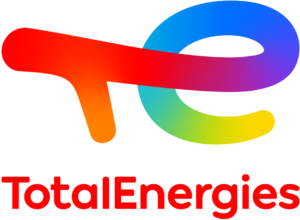Energy is fundamental for human life and progress. At the same time, energy is at the heart of the climate challenge: the production and use of energy are responsible for 70% of greenhouse gas (GHG) emissions. Meeting the climate challenge means taking on the energy transition and finding new production pathways.
We have to find new solutions especially for the transport segment, which contributes to 25% of the worldwide CO2 emissions. This is particularly true for aviation as electrification is not yet a possible option. A switch to Sustainable Aviation Fuels (SAF) is key: SAFs are recognised as reducing the CO2 emissions of the aviation industry by up to 80% if they were to replace fossil jet fuel completely.
Yet the feedstock quantities needed to produce sufficient SAFs are immense. If we look ahead up to 2050, replacing fossil aviation fuel by SAF would imply a worldwide production volume of 400 MT/year. The same volume is also forecasted in order to fully decarbonise the maritime sector by 2050. Already for 2030 we will have to reach ambitious targets set by the European Union and its main economical actors. For the coming decade, biofuels are the only solution available at large enough scale.
The prize questions are: Which feedstocks for biofuels are abundant, sustainable and circular? And how to reach the necessary scale based on today’s infrastructure?
From fossil to biorefineries
To accelerate the transformation of our industry, TotalEnergies has created a new technological branch OneTech. OneTech brings internal technical and R&D teams together to design major industrial projects in all our energy types and provide innovative solutions while leveraging operational excellence. Bringing these experts together is instrumental in the transformation of our refineries into biorefineries and OneTech is a strong enabler.
TotalEnergies is already producing sustainable fuels after having transformed some refineries. In 2019, La Mede, TotalEnergies first bio-refinery, started to produce renewable road and aviation fuels by a steadily increasing share of animal fats and used cooking oils. The site is able to produce up to 500kt/y of biofuels.
A second site, Grandpuits, is currently being transformed into a zero crude platform including in particular, a biorefinery planned to start operations in 2025. The biorefinery will process 400 kt/year of feedstock, mainly animal fats and used cooking oils, and will produce 210 kt/yr of aviation biofuels, 50 kt/yr of renewable diesel and more than 70 kt/yr of bio naphtha/LPG.
We are also working on co-processing deployment in other refineries to rapidly ramp up biofuels production capacity. Notably, the TotalEnergies Normandy Platform has been producing SAF blended with fossil jet fuel since January 2022 by co-processing animal fats or used cooking oils together with fossil streams.
With these investments TotalEnergies is not only transforming its sites, but also preserving jobs in Europe.

A digital innovation model
All our biofuel production assets run in particular / almost exclusively on used cooking oils and other waste and residues – i.e. sustainable lipidic feedstocks (fats & greases) that neither directly nor indirectly compete with food and feed plants – and the quantities needed are ever increasing. Despite their clear advantages from a sustainability perspective, our choice of feedstocks also poses challenges – both in terms of access and of capability of processing them into high quality products such as Sustainable Aviation Fuel.
Our solution for the latter was to innovate our modeling approach and use a digital twin developed by OneTech.
This modelling tool is based on detailed analysis of feedstocks coupled with La Mede’s industrial process data. It takes into account up to two thousand potential reactions occurring in the process. Based on the quality of available feedstocks, it allows process optimisation to maximise production and predict biofuel properties. This digital twin has been initially designed for La Mede processes, but the R&D teams are already working on a new version adapted to Grandpuits refinery and another one for coprocessing in other refineries like Normandy.
Ingenuity needs predictability
Our industry is adapting to the twin transition of decarbonisation and digitalisation – but also facing a twin challenge: We need to innovate and diversify feedstock and fuel production technologies at unprecedented scale and at the same time navigate an increasingly complex regulatory environment. Yet, how can we develop the best pathways for the best-fitted feedstocks, without a clear visibility on the regulatory framework?
Innovation needs predictability – for the current technologies as well as for new technologies beyond lipidic feedstocks. We are at the very beginning of a long innovation process and we need a clear perspective on the regulatory direction if we are to succeed in advancing and deploying new biofuel and e-fuel technologies. For example, if we develop processes to convert CO2/CO and Hydrogen or Alcohol to Jet fuel we need regulatory stability: All these technologies depend on the availability of specific feedstocks – and on the continued eligibility of these feedstocks under the European Renewable Energy Directive (RED).
The energy transition is a long game and requires long term investment – we can master most technological challenges, but only with clear and stable legislative perspective on where to focus our innovation efforts.

